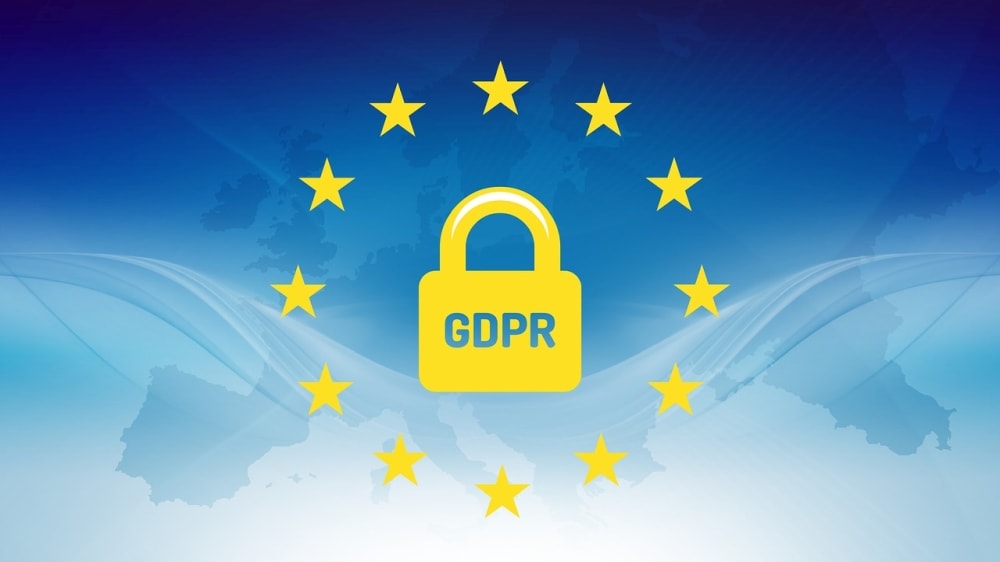 graphic: Doofy Design/CC0/Pixabay.com
graphic: Doofy Design/CC0/Pixabay.comAccording to the SAS survey "GDPR: The right to remain private," GDPR has most impacted the business landscape for social media and retail companies. Users and clients in these industries most often request deletion or stop the use of their data for marketing purposes.
Companies most affected by GDPR:
- social media - 43%
- retail - 41%
- insurance - 35%
- energy suppliers - 34%
The insurance sector faces particular challenges. Agents gather sensitive information not only about income and family situation but also about lifestyle and habits. If this data is lost, the organization and its clients face serious consequences. A third party with such details could use them for blackmail, targeting both the data owner and the agent. In such cases, companies must notify the Personal Data Protection Office and the affected individuals within 72 hours.
- Interpreting the new GDPR data protection rules is also challenging for online marketing organizations. The law requires internet portals to disclose all entities to whom they transfer user data, explains Dr. Paweł Mielniczek, data protection expert at ODO 24. - Furthermore, EU regulations empower users to decide whether they agree to be tracked for advertising purposes. These rules have made campaign planning and execution considerably more difficult.
"Most Polish news portals and online stores have adopted consent mechanisms designed in a way that makes it hard to refuse consent," according to information from the Panoptykon Foundation. Unfortunately, this approach, which forces or assumes consent, does not comply with current regulations. According to Recital 32 of the GDPR preamble: Consent should be given by a clear, affirmative act establishing a freely given, specific, informed, and unambiguous indication of the data subject’s agreement to the processing of personal data, for example, in the form of a written (including electronic) or oral statement.
- After GDPR implementation, businesses often rushed to establish new data policies. Unfortunately, many of these policies do not fully align with the intentions of the European Parliament, concludes Dr. Paweł Mielniczek, data protection expert at ODO 24. - It`s worth revisiting them, perhaps with a specialized external firm, to avoid unpleasant consequences like high fines.
GDPR and Press Releases
Do the new regulations require journalist consent to send press releases? Experts suggest two legal grounds: consent and the legitimate interest of the data controller. One may wonder which is safer.
- It seems that consent is currently the safer option, says Michał Sztąberek, president of iSecure, in an interview with infoWire.pl. - Press releases may often be considered commercial information sent electronically, and the Law on Electronic Service Provision requires consent in such cases.
What if we requested permission to send press releases but received no response? Unfortunately, silence indicates no consent.
Sometimes, a company decides to share its journalist database with a PR agency so that the agency can send press releases to editors. In such cases, it is best if the data controller (company) signs a data processing agreement with the processor (agency).
Report "GDPR: The right to remain private"
source: SAS
COMMERCIAL BREAK
New articles in section Law in media
Dietary supplement ads in Poland. Who keeps influencers in check?
Newseria, KFi
One in three Polish internet users considers influencer recommendations when deciding on medicines and dietary supplements. Although promotion of such products is regulated, there are still cases of advertising that skirt the law.
SEO Poisoning. Hackers Use Search Engines to Target Businesses
Piotr Rozmiarek
Search engines help us quickly find information, but they can also be used by cybercriminals. SEO poisoning is a tactic where attackers manipulate search engine rankings to place harmful websites at the top of search results.
Phishing in the Cryptocurrency Industry. Fake Recruitments Steal Data
Piotr Rozmiarek
Security researchers have detected a social engineering campaign targeting job seekers in the Web3 industry. The attack aims to conduct fake job interviews via a meeting application that installs information-stealing malware.
See articles on a similar topic:
Data for Benefits: What Encourages Sharing Personal Information Online
Krzysztof Fiedorek
Most Poles are aware of the value of their personal data and do not share it without reason. However, one in five is willing to share data in exchange for benefits, and 16% of us do not remember if we have done so. These are the results of a study conducted by ChronPESEL.pl and the National Debt Register under the patronage of the UODO.
What Data Google Collects. Privacy on the Internet
KF
According to a gs.statcounter.com report – May 2018, Google captures over 97% of internet users. Currently, many free applications are available to users. What does Google collect? When using the most popular search engine, we should be aware of how our data is collected and used.
Cyber Threats 2023: Phishing Dominates, AI Targeted
Krzysztof Fiedorek
The CERT Orange Polska 2023 report reveals a rapidly evolving cyber threat landscape. Phishing has taken a decisive lead, accounting for over 44% of reported incidents. Advanced social engineering techniques, deepfakes, and a surge in malicious ads lure users with promises of quick profits or easy opportunities.
Why do People Spread Disinformation? Results of DigiPatch Research
Ewelina Krajczyńska-Wujec
People strongly driven by the need for power are more likely to share posts on social media, including disinformation. Power itself, like the need to gain prestige and recognition, is not associated with the frequency of spreading false information, according to research involving Professor Małgorzata Kossowska from the Jagiellonian University.





























